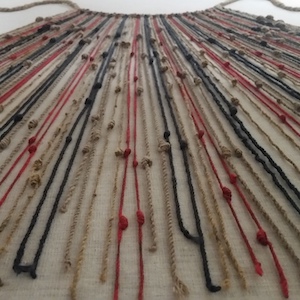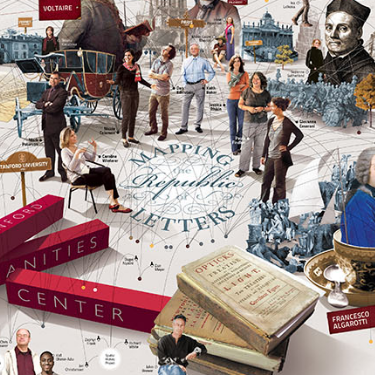Culture

Inca Khipu
Andean peoples, including the Incas, recorded information on khipus (also spelled quipu), collections of colored and knotted cords such as this one.

Juan de Betanzos, Narrative of the Incas
This extract comes from Juan de Betanzos’ Narrative of the Incas, which was written in the sixteenth century but not published until 1880. Betanzos (1510-1576) was among the early conquistadors, and served as a military leader and official.

Eighteenth-Century Uruguayan Home
On display here are several objects from the Museo Casa de Nacarello, a small museum in Colonia, Uruguay that aims to recreate daily life in an eighteenth-century home.

Castillo de Piria
This castle-like home once belonged to Francisco Piria, a Uruguayan entrepreneur and the founder of the town of Piriápolis. He lived from 1847 to 1933. Piria was the child of Italian immigrants, who comprised a major portion of the population in the Rio de la Plata region during this period.

Mapping the Republic of Letters
Browsing the site, users are able to gain a deeper appreciation for how data visualisation can help academics examine previously well-known and well-utilised primary sources in new, innovative ways.
Ottoman Decree Regarding Protestants, 1850
This imperial decree, or firman, was translated from Ottoman Turkish to English by the American Board of Commissioners for Foreign Missions.

Fourteenth-Century Chinese Dragon
This Chinese animal figure belongs to the rich collections of the Museo Nacional de Arte Decorativo in Buenos Aires. Depicting a dragon, the piece dates back to the fourteenth century.
On Diverse Arts (De diversis artibus)
Theophilus’ De diversis artibus is the only complete treatise on art to survive from the High Middle Ages.
Bernard of Clairvaux's Apologia
Bernard of Clairvaux was abbot of the Cistercian monastery of Clairvaux, in Burgundy, France, and a well-known preacher who travelled widely and was involved with many of the most pressing issues of his day, from papal power to the Crusades.
On What Was Done In His Administration (De administratione), 1144–1148
In the later 1140s, Abbot Suger of the Royal Abbey of Saint Denis, outside Paris, wrote an account of his extensive project to rebuild and redecorate his abbey church.